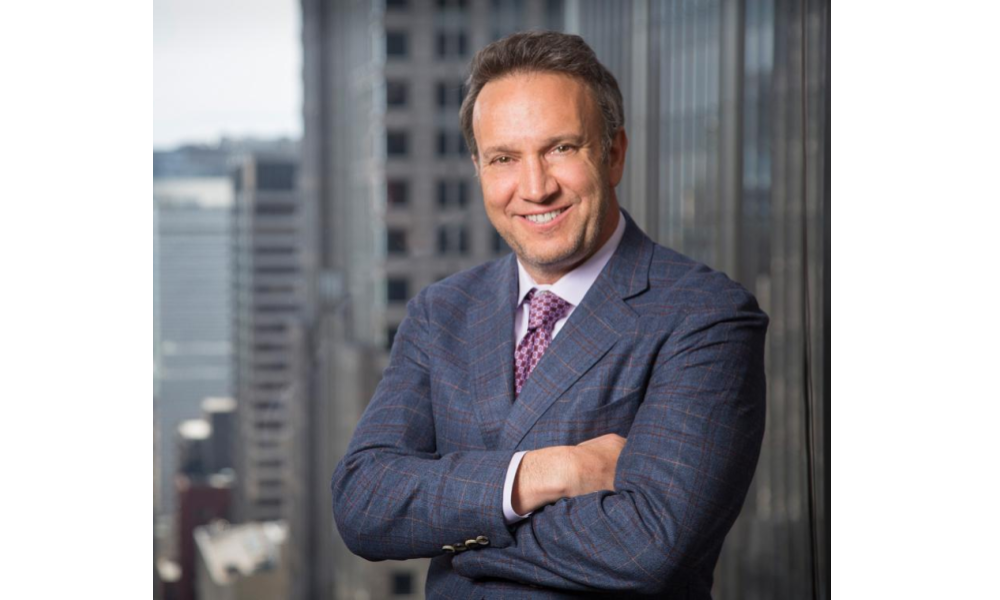Acquisitions
Inside the Boardroom: David Schwartz
By
Joseph Richter

The Real Estate Daily Beat equips real estate firms and industry leaders with exclusive news and insights to inform impactful decision making. Learn more about corporate subscriptions here.
David Schwartz, CEO & Chairman of Waterton joined us for an interview. We discussed the multi-family sector, how to reduce interest rate risk, and the attractive demographics in the SFR space.
Daily Beat: Waterton recently closed on its acquisition of Verona at Boynton Beach, a 216-unit rental in Paul Beach County, FL, from Robbins Property Associates for $80 million. Can you please discuss what you’re seeing in that market?
David Schwartz: Thematically we are very interested in acquiring more properties in Southeast Florida. The market has great fundamentals – it’s undersupplied and is benefiting from huge migration from Northern States.
We’ve had difficulty buying there, but continue to look for attractive deals. A newer strategy for us has been partnering with local developers because in many cases it costs less to build than to buy today.
Daily Beat: The seller paid $43 million for the asset in 2018, a rapid $37 million appreciation. Cap rates are in the low 3’s. What’s the play here?
David Schwartz: A classic value-add deal. Verona at Boynton Beach is an early 2000 vintage property where we will be renovating the apartments, common areas, and amenities. Not much has been done to the property since it was built. There’s significant natural market rent growth there too.
Southeast Florida in general had some of the highest rent growth rates in 2021 and is projected to continue on that track. This is a well-located asset where we can create value and generate returns.
The cap rates are low across the nation and can average in the low three cap range. We like markets with strong rent growth and assets where we can create value. This Verona asset had those attributes.
Daily Beat: The entire Sunbelt has benefited.
David Schwartz: Yes. The appreciation is staggering. If you look at the Sunbelt in general, there’s been significant appreciation. Markets like Phoenix, Las Vegas, and Atlanta have also been the beneficiaries. The reality is that asset appreciation in the multi-family sector has been a common theme across the nation.
Last year was the highest rate of rent growth and there are real supply constraints in the market. This reality comes from under-building housing in general for well more than a decade.
Coming out of a great financial crisis, the housing industry as a whole was shell shocked and did not build enough. We’ve been talking about this notion for years, but it’s finally playing out. This shortage of housing will get exacerbated with higher interest rates.
Daily Beat: With interest rates on the rise, will rental growth be strong enough in these multi-family markets? Are you concerned that this lending environment has gotten too aggressive?
David Schwartz: It’s a double edged sword because the interest rate environment is going to make it that much harder to buy. The rate hikes will pull buyers out of the market and make them renters. It’s going to increase one’s cost of capital and cap stack, which is going to have an impact on further appreciation.
Depending on the market, it could cause valuations to go down. I think we’re starting to see that slightly. Anecdotally, as an active seller, we see fewer groups in the best and final rounds.
Some of that froth that we had been seeing the past quarter or two simmer down a bit. It could cause values to flatten for a period of time. In some cases, I think you might see some pricing down from where it might have been a month or two ago, with the caveat that values were going up so much in Q4.
Daily Beat: The frenzy had to settle down a bit.
David Schwartz: A lot of appreciation from the past two quarters may be given back because of an increase in the cost of capital. Cap rates are low and interest rates are going up pretty significantly.
Most investors have negative leverage going in, but it’ll turn positive quickly because rents are going up so much. In the short term, you could have low cash-on-cash returns until the rent growth kicks in and it should turn positive.
Daily Beat: As long your leverage is in check and rent growth continues based on the limited housing supply in this country, multi-family should be able to weather different maro-econimic environments.
David Schwartz: We’re definitely concerned about rising interest rates and are fixing rates or swapping them to eliminate interest rate risk. Even though that’s available, when you’re fixing rates now, they’re up from where they were a month or six weeks ago before the war. That definitely impacts how you price things.
Daily Beat: After acquiring a property, where do you ultimately find the most success in juicing the rent roll based on the Capex you put in?
David Schwartz: Our focus is on the value-add piece. We create value by upgrading kitchens, bathrooms, high impact areas, and amenities. The second piece is bringing our management team and what we call Resitality – the high level of customer service and technology at our properties. The resident experience not only results in higher rent, but we have higher retention rates and have satisfied residents when rent goes up. This helps lower your turnover, marketing, and leasing costs. This approach helps create a lot of value.
Daily Beat: I know you’ve been in Florida and Texas since the mid 1990s. Can you speak to what you’re seeing in Dallas, Austin, and Houston?
David Schwartz: We’ve been in Southeast Florida and Texas since the mid nineties. Regarding Texas, we are primarily focused on Dallas, Austin, and Houston. These have always been commodity markets with no supply constraints. You’ve always had more supply than demand.
In our history of investing in Dallas, we’ve never had rent spikes and generally had some level of concessions – it was always a competitive market. In this cycle, it’s behaving more like the Bay Area.
For-sale housing has gone up tremendously and it’s difficult for that to compete with rental housing because it’s getting expensive. Currently, you have more demand than supply and developers are having trouble keeping up, but trust me they will eventually catch up. They always do.
The other issue with the supply of multi-family is that the replacement cost has skyrocketed. In the past year, Dallas multi-family costs are up approximately 50% because it’s more difficult for developers to create supply. If you couple that with the demand and migration patterns like we discussed in South Florida. We continue to see lots of household formations in Texas, so it’s been an exceptional market. Dallas has had the highest rent growth since we’ve tracked it. Austin has also been an extremely strong market.
Houston, which has always been overbuilt, has been a late comer to the recovery, but it’s strong too. The market is not as good as Dallas and Austin, but it’s a solid market that’s primed to benefit from some of the energy issues globally. Higher oil and gas prices are generally good for the Houston market and the hiring of energy companies and great demand. Texas has been a terrific performing market.
Daily Beat: You’ve also been active in Georgia and North Carolina.
David Schwartz: Yes. The whole Sunbelt has been very strong.
Daily Beat: When it comes to the national multi-family market, have you seen any changes in the past couple years insofar as the transaction process is concerned?
David Schwartz: There are more buyers, investors, and sponsors in the multi-family space because of all the real estate asset types, multi-family and industrial are the best performing ones and capital has migrated to those sectors.
Capital that was previously invested in office and retail is now shifting to multi-family and industrial. We’ve also seen many sponsors who in the past will only buy office buildings and now acquire multi-family properties. It’s a much more competitive asset class for good reason.
The assets are very liquid and transactions happen very easily and quickly. Capital flows are so strong. Out of all the real estate asset classes, multi-family is the most liquid. You sign a contract and people close. In the past six months, it’s been so aggressive that you’ve seen buyers put up a non-refundable deposit at contract. It has started backing off due to the war and inflation news, which has chilled the debt markets.
Daily Beat: Can you please discuss what you’re seeing in the debt market?
David Schwartz: CMBS was a big player in the past year and has not been as aggressive recently. Fannie and Freddie have been very active in refinancing, but have not been an active player in acquisition financing. The insurance companies are picky, so you have a lot of bridge debt available.
These debt funds are active, but they float over SOFR and their spreads are up because their senior debt costs have increased. The SOFR curve is super steep, so that’s expensive debt and comes along with floating rate risk. Then you have bank financing. This has all happened in the past month after the war started and has taken the froth out of the market. You’re seeing less of that hard money because there’s definitely financing execution risk.
We were looking at some debt funds recently. When you look at the SOFR curve and add their spread, the rate on recent deals that we’ve looked at would be 5%, and that’s just not interesting to us.
Daily Beat: What you’re getting from the more traditional banks of course is much stronger than that.
David Schwartz: Yes, it’s more attractive. Much lower spreads and you can effectively fix it with swapping.
Daily Beat: Favorite REIT?
David Schwartz: I don’t invest in apartment REITs because I invest in apartments and it’s fairly correlated, but I’m happy to discuss a few REITs that I think are very strong.
Most of the apartment REIT CEOs are friends of mine, so I hate to pick one of them. The coastal ones like EQR and Avalon Bay are now very focused diversifying their portfolios in the Sunbelt, while maintaining their presence in the gateway cities – New York, LA, San Francisco, and Seattle. They are becoming much more diversified and will look more like Camden and Mid America, which have much less gateway and coastal presence.
David Schwartz: They’ve all migrated to the same markets and are going to be great 10-year holds because housing in general will be so strong for the next decade.
Daily Beat: I know you recently announced a partnership with Second Avenue in the single family rental (SFR) space. What are your thoughts on those REITs?
David Schwartz: We really like the SFR space. Owning an SFR REIT like Invitation Homes is a really good bet too because the fundamentals of the SFR industry are strong and might even have an edge above multi-family because of the demographics. There are many millennials who need to move into a house that has the bedrooms, space, and outdoor yards for families.
The SFR industry can create a reasonably affordable way to have a single family rental lifestyle that’s going to be hard to achieve for typical households in this interest rate environment. The SFR is the right business at the right time and I think those would be good, long-term holds.
*The interview has been edited and condensed for clarity.





